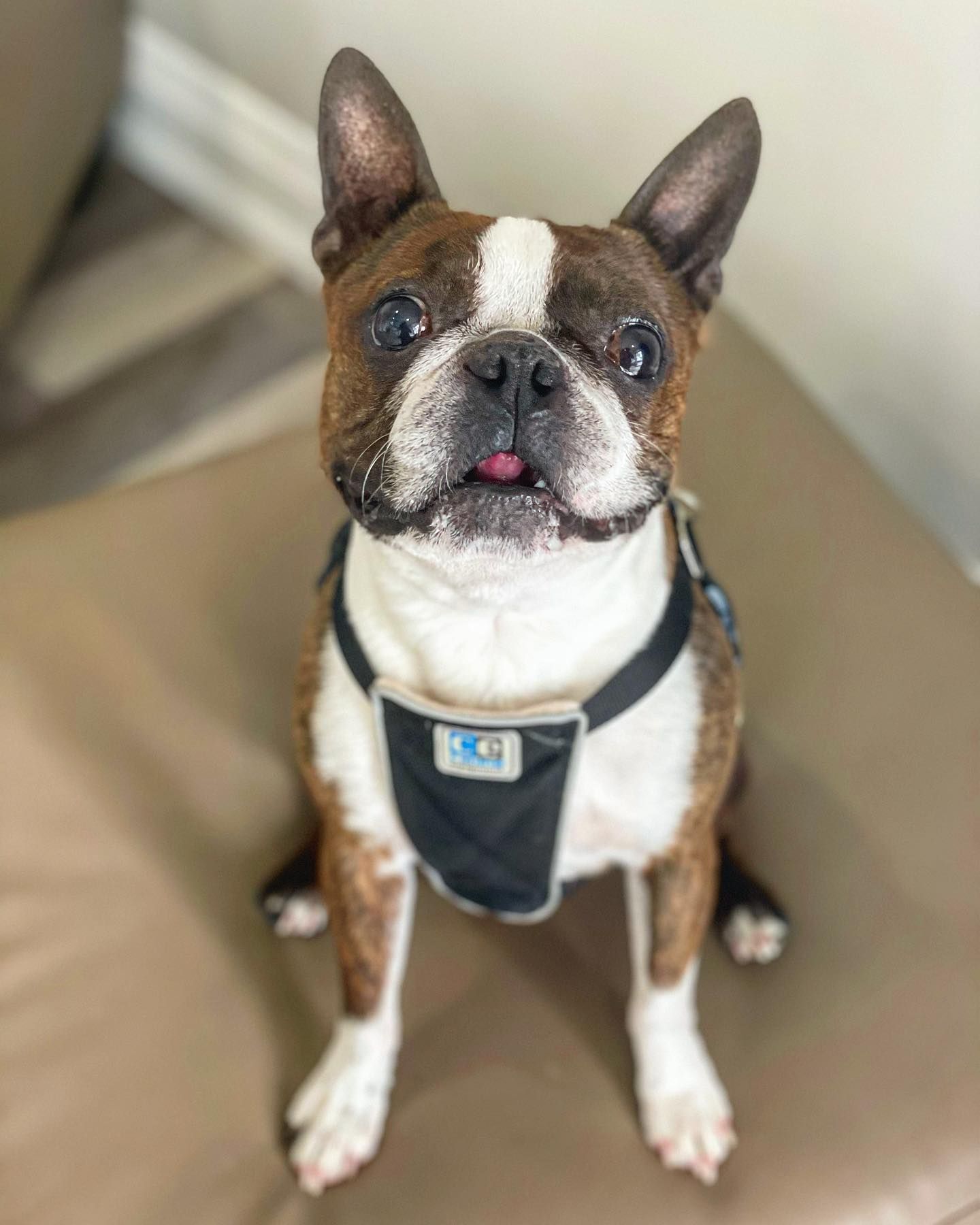Puppy Vaccinations | Schedule and Types
Congratulations on your new puppy!
So you've brought your puppy home from the breeder or shelter. You're working on potty training but now you need to call your vet to schedule your puppy's vaccines. One question we are commonly asked is "what vaccines does my puppy need and when?".
Every puppy's vaccine protocol is structured based on their previous vaccinations, breed, size, individual lifestyle and risk exposure. In Oakville, dogs are exposed to diseases associated with exposure to other dogs in an urban setting but also disease carried by wildlife. We recommend four core vaccinations for your dog, Rabies, Distemper combination, Kennel Cough vaccine and Leptospirosis. Currently, vaccination against Lyme Disease is not a core vaccine, but is recommended for at risk dogs.
All vaccine recommendations are in accordance with the World Small Animal Veterinary Association (WSAVA) vaccination guidelines.
- 1st Distemper Combo (some breeders will give this vaccine)
- 1st Leptospirosis Vaccine
- Kennel Cough Vaccine
- Deworming
- Flea, tick and heartworm preventative
- Rabies vaccine - puppies must be over 12 weeks old to be given the Rabies vaccine
- 2nd Leptospriosis Vaccine
- 2nd Distemper Vaccine
- Deworming
- Flea, tick and heartworm preventative
- 3rd Distemper Vaccine
- Deworming
Why does my puppy need a series of vaccines?
Normally vaccines can stimulate immunity in one or two vaccinations. However, young puppies receive protection from their mother's milk called maternally derived antibodies (MDR). These antibodies protect your puppy from viruses and bacteria but they can also block the immune system from responding to vaccines. These antibodies protect each puppy for a highly variable amount of time, the level of maternal antibodies declines anywhere from about 3 weeks of age and are usually gone by 14-16 weeks of age. Every puppy's level of maternal antibodies is different depending on their individual immune systems, how long they nursed their mother for and if their mother was vaccinated.
Vaccinations for major viral diseases are administered at 3-4 week intervals to provide disease protection to your puppy as their level of maternal antibodies decreases and to ensure the vaccines we administer properly activate the puppy's immune system.
Our team is here to get you and your puppy off to the right start. If you have any questions about your puppy's vet care or to schedule an appointment, call us at 905 844 6786.


Street Address : 1026 Speers Road
City : Oakville
State / Province : Ontario
Postal / Zip Code : L6L 2X4
HOURS
Monday: 9:00 am - 6:00 pm
Tuesday: 9:00 am - 6:00 pm
Wednesday: 9:00 am - 7:00 pm
Thursday: 9:00 am - 5:00 pm
Friday: 9:00 am - 5:00 pm
Saturday: Closed
Sunday: Closed
SERVICES
© Copyright 2024 - All Rights Reserved - Mac Animal Clinic | Cancellation Policy | MyPortal™


